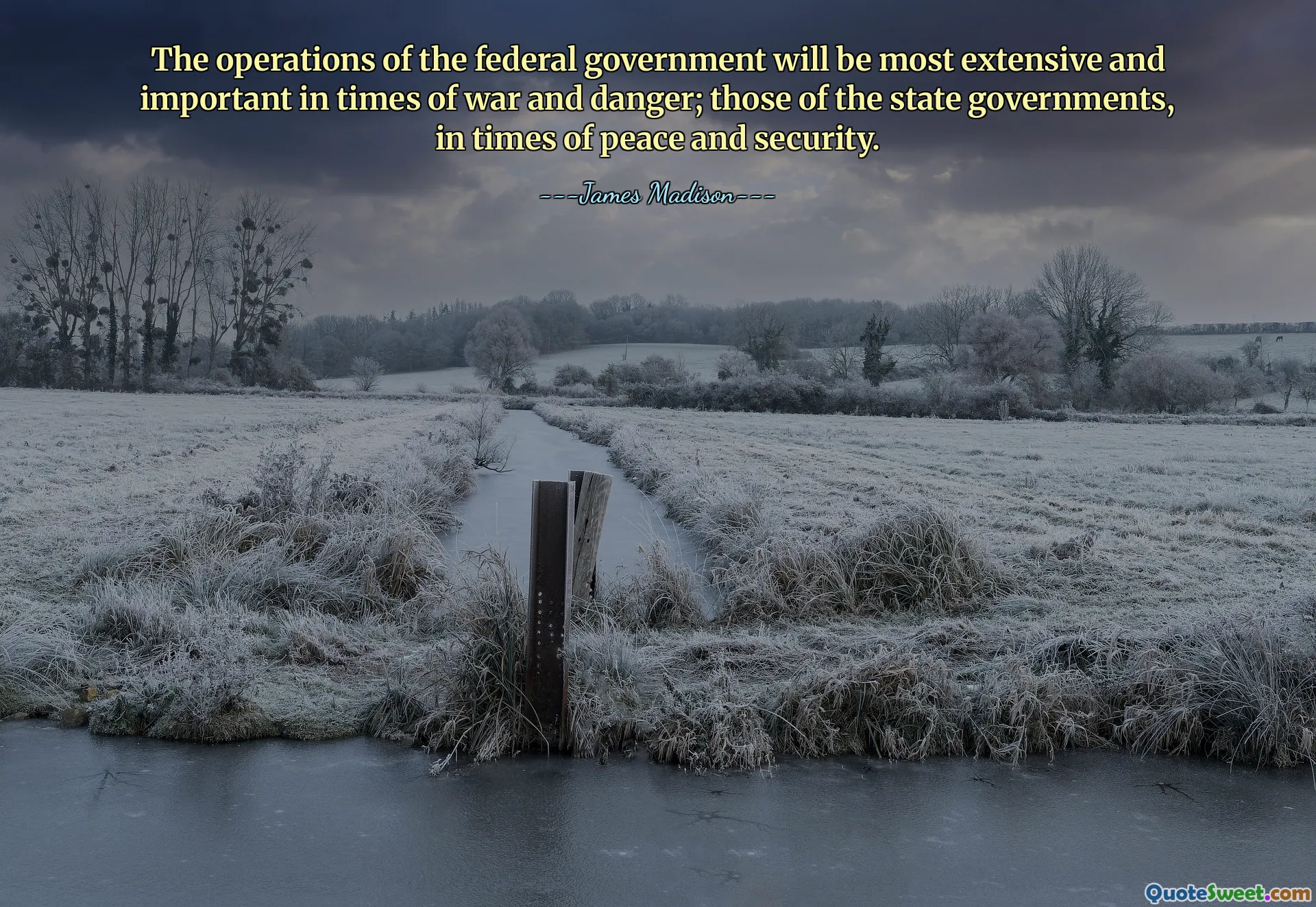
The operations of the federal government will be most extensive and important in times of war and danger; those of the state governments, in times of peace and security.
This quote by James Madison highlights the dynamic balance between federal and state governments, emphasizing how their roles shift depending on the national and local contexts. In times of war and imminent danger, the federal government takes a central role, coordinating efforts across states, managing national defense, and responding to external threats. This concentration of power is necessary to mount unified and efficient responses to crises that threaten the entire nation. Conversely, during periods of peace and security, the importance of state governments becomes more prominent. Local administrations are better positioned to address community-specific needs, maintain public order, and ensure the welfare of their citizens. This delineation of responsibilities serves as a safeguard against overreach, ensuring that central authority does not overshadow local governance during stable times. It reflects Madison's understanding of the importance of a flexible government structure that adapts to the prevailing circumstances, balancing power to prevent tyranny while ensuring efficient crisis management. The quote also underscores a fundamental principle of American federalism: the division of powers is not static but graduated, augmenting federal authority in emergencies and reverting to local control when stability is restored. This perspective remains relevant today, as governments worldwide grapple with how to best allocate power during crises, whether they be health emergencies, economic downturns, or security threats. Recognizing the importance of adaptability and the layered nature of governance can lead to more resilient political systems that respect the sovereignty of local entities while maintaining a robust national framework during turbulent times.











